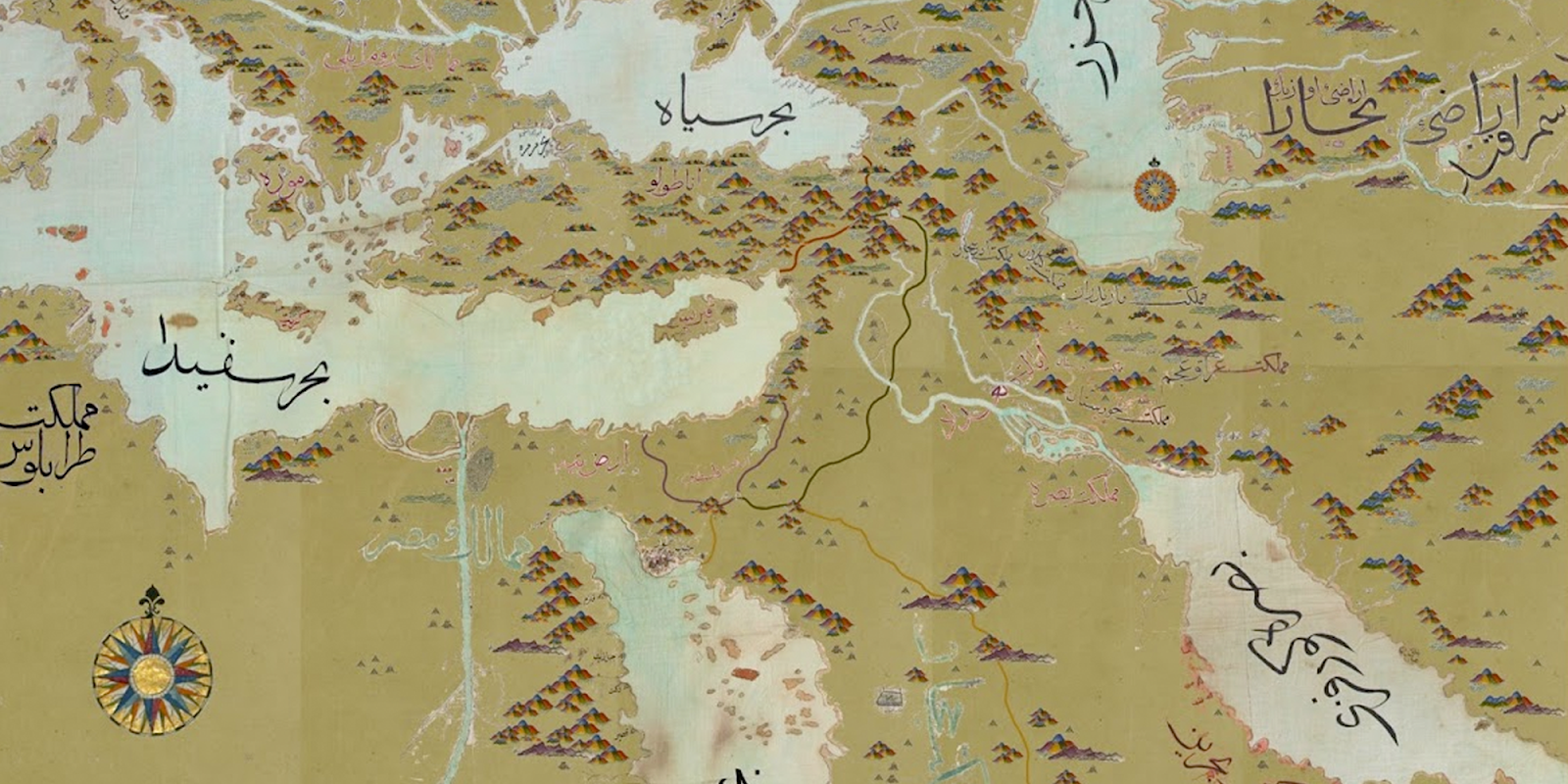On the Hajj Trail
hosted by Matthew Ghazarian
| Beyond attending classes, reading books, or listening to podcasts, how do people learn about the history of the Ottoman Empire, the Middle East and the Islamic world? In this episode, we discuss a gaming project, The Hajj Trail, as one alternative. Like the 1970s educational computer game The Oregon Trail, The Hajj Trail is an interactive simulation of historical Hajj pilgrimages to Mecca. It aims to provide students with an opportunity to interact with 17th century Ottoman social and cultural history through a hypothetical journey on the road to Mecca. Also like its US-based predecessor, the simulation asks participants to make choices along the way, one beset with financial, ecological, and political obstacles. The visuals, music, and situations have been drawn from primary sources gathered by our guest Tyler Kynn, and his collaborators. As the co-founder and current project lead, Kynn sat down with us to talk about creating the The Hajj Trail and how he has used it in the classroom. We discuss the impetus for the project, the mechanics of assembling it, and the learning opportunities that can arise when historians take seriously the potential of pairing education and play.

 | Click for RSS Feed | 
|

|
Beyond attending classes, reading books, or listening to podcasts, how do people learn about the history of the Ottoman Empire, the Middle East and the Islamic world? In this episode, we discuss a gaming project, The Hajj Trail, as one alternative. Like the 1970s educational computer game The Oregon Trail, The Hajj Trail is an interactive simulation of historical Hajj pilgrimages to Mecca. It aims to provide students with an opportunity to interact with 17th century Ottoman social and cultural history through a hypothetical journey on the road to Mecca. Also like its US-based predecessor, the simulation asks participants to make choices along the way, one beset with financial, ecological, and political obstacles. The visuals, music, and situations have been drawn from primary sources gathered by our guest Tyler Kynn, and his collaborators. As the co-founder and current project lead, Kynn sat down with us to talk about creating the The Hajj Trail and how he has used it in the classroom. We discuss the impetus for the project, the mechanics of assembling it, and the learning opportunities that can arise when historians take seriously the potential of pairing education and play.
You can try The Hajj Trail here.
You can learn more the open-source tool Twine, used to write Hajj trail, here.
Contributor Bios
 |
Tyler Kynn is Assistant Professor of History at Central Connecticut State University. His research explores the hajj in the early modern world, examining both narrative and archival material related to questions of Ottoman sovereignty, power, and identity in the Hijaz. |
 |
Matthew Ghazarian is an Eveillard Postdoctoral Fellow in Environmental Science and Policy at Smith College, where his research and teaching focus on environmental history, political economy, and communal conflict in the Middle East. Ghazarian’s current project examines the links between material conditions - like debt, drought, and hunger - and widening communal divides in the late Ottoman Empire. |
Credits
Episode No. 539
Release Date: 20 March 2023
Recording Location: Smith College
Sound production by Sam Dolbee
Music: Chad Crouch, "Pacing"
Bibliography and images courtesy of Tyler Kynn
Release Date: 20 March 2023
Recording Location: Smith College
Sound production by Sam Dolbee
Music: Chad Crouch, "Pacing"
Bibliography and images courtesy of Tyler Kynn
Further Listening
 |
Lale Can | 191
4/18/2015
|
Central Asians and the Ottoman Empire |
 |
Michael Christopher Low | 501
4/7/2021
|
Ottoman Mecca and the Indian Ocean Hajj |
 |
Randa Tawil | 536
1/21/23
|
Recovering Migrant Histories |
 |
Dženita Karić | 406
3/17/19
|
Bosnian Comrades in Hajj |
 |
Eileen Kane | 219
1/7/16
|
Russian Hajj |
Images
 |
| A screenshot from The Hajj Trail |
 |
| A custom map Kynn made for the The Hajj Trail for the player to track their journey |
 |
| A close up of a journey map |
 |
| What The Hajj Trail looks like under the hood |
Bibliography
You can try The Hajj Trail here.
You can learn more the open-source tool Twine, used to write Hajj trail, here.
Can, Lale. Spiritual Subjects: Central Asian Pilgrims and the Ottoman Hajj at the End of Empire. Stanford: Stanford University, Press, 2020.
Boom, Krijn, et.al., “Teaching through Play: Using Video Games as a Platform to Teach about the Past” in Communicating the Past in the Digital Age, ed. Sebastian Hageneuer. (London: Ubiquity Press, 2020).
Denning, Andrew. “Deep Play? Video Games and the Historical Imaginary” in The American Historical Review. Volume 126, Issue 1. (March, 2021), pp. 180-198.
"Gaming the haj, from the comfort of home." The Economist. 7 Jul 2022.
Kynn, Tyler. "Trials and Tribulations on the Early Modern Hajj." Medieval and Early Modern Orients. 11 July 2022.
Kynn, Tyler. "A Twine Journey to Mecca: Digital Storytelling in the Classroom." The Digital Orientalist. 21 Feb 2023.
Low, Michael Christopher. Imperial Mecca: Ottoman Arabia and the Indian Ocean Hajj. New York: Columbia University Press, 2020.
McCall, Jeremiah. “Navigating the Problem Space: The Medium of Simulation Games in the Teaching of History” in The History Teacher 46, no. 1 (2012): 9–28.
Pastor, Camila. The Mexican Mahjar: Transnational Maronites, Jews, and Arabs under the French Mandate. Austin: University of Texas Press, 2017.
Saldaña-Portillo, María Josefina. Indian Given: Racial Geographies across Mexico and the United States. Durham: Duke University Press Books, 2016.
Tang, Eric. Unsettled: Cambodian Refugees in the New York City Hyperghetto. 1 edition. Philadelphia: Temple University Press, 2015.











Comments
Post a Comment
Due to an overwhelming amount of spam, we no longer read comments submitted to the blog.